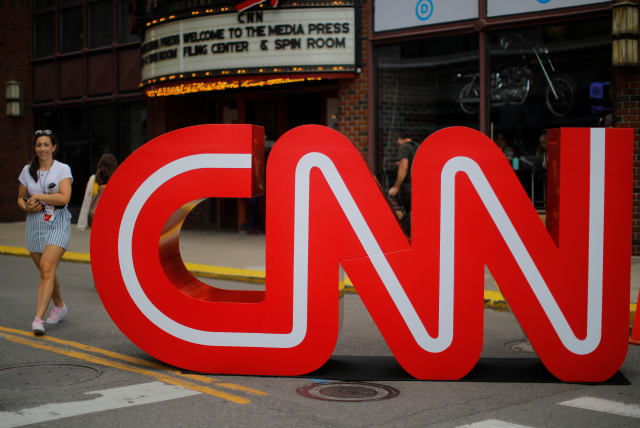Is Israel close to launching war on Hezbollah? CNN's report is overblown - analysis

The CNN story appears to be a carefully calculated leak from US officials to pressure Hezbollah into finally agreeing to a deal in which its Radwan fighters withdraw beyond anti-tank missile range.
CNN’s report on Wednesday, that Israel may be closer now than ever before to attacking Hezbollah in a larger-scale war, is likely overblown.
In actuality, while the IDF still may very well start a general war with the Lebanese terror group in the coming months or years, the chances of this happening imminently are probably lower now than at most points since October.
The CNN story appears to be a carefully calculated leak from US officials to pressure Hezbollah into finally agreeing to a deal in which its Radwan fighters withdraw beyond anti-tank missile range, which would roughly be achieved in many places by moving north of the Litani River.
A calculated leak
These officials are frustrated that their efforts, along with those of France, have made no real progress in getting the Lebanese-based terrorist group to agree to a deal.
In all scenarios, the US wants to avoid a general war between Hezbollah and Israel. This is not only to avoid the large-scale destruction expected on both sides: It is also to avoid Washington being drawn into a broader war between Western interests and Iranian ones.
To date, all US military interventions in the Middle East during the war have been carefully tailored and circumscribed to avoid escalations.
A war with Hezbollah would make this much harder.
These officials are also worried by escalations in recent days where the IDF attacked Baalbek and Hezbollah attacked the western Galilee, the Golan Heights, and a variety of IDF army bases, including harming more soldiers.
Baalbek is around 100 kilometers away from the Israeli border in Lebanon’s northeast, whereas most IDF attacks to date have been focused only on southern Lebanon or on Beirut, which is still much further south than the ancient city.
Until this week, most Hezbollah attacks were limited to the northeastern Galilee, especially empty areas.
In that sense, there is reason for the US to worry – and a strategy of convincing Hezbollah that time really is running out and that Washington cannot hold back “the crazy Israelis” might work.
It probably worked in the 2010s when Iran believed that Prime Minister Benjamin Netanyahu would launch a preemptive strike on its nuclear facilities if it did not reach a nuclear deal with the US.
Sanctions convinced the Islamic Republic as well, but part of the game was Obama administration leaks about no longer being able to hold back Netanyahu.
Despite that narrative, it seems years later that many officials do not think Netanyahu would have actually pulled the trigger.
Biden administration misses out
In any case, this Biden administration's thinking likely misses two key trends.
One is that Defense Minister Yoav Gallant and the IDF have wanted to launch a general war against Hezbollah since October 11 and have probably repeated this hundreds of times throughout this conflict.
So the idea of Israel attacking is not new.
But possibly more importantly, as The Jerusalem Post has reported, by mid-January, the IDF had already succeeded in clearing around 75% of the Radwan special forces and 85-95% of the lookout towers.
The Post understands that those numbers have only gotten better for Israel since then, such that the vast majority of the initial 6,000 Hezbollah Radwan force fighters have already been pushed back to the Litani by constant small rounds of Israeli attacks.
Put differently, the IDF has already mostly achieved its goal of rolling back Radwan, and the only question is about preventing Hezbollah from sending them back against Israel in the future.
In this light, the Post reported in late January that an increasingly likely scenario is that there is no deal – and also no war.
In fact, because so much of Radwan has already been removed, war is less likely now than it was months ago when the process of removing the special force had not started or was just starting.
Going forward, Hezbollah can simply unofficially choose to quietly not send back most of its Radwan forces while loudly noting that some of its forces remained, and the IDF overlooks the symbolic number of hundreds of them that may remain closer to the Israeli border.
Along with the IDF maintaining two full divisions to defend the border, dwarfing the number of nearby Radwan, this formula could let the military essentially achieve its security goals and let Hezbollah save face.
Of course, a miscalculation could lead to war tomorrow. And at some point in the next several years, many do see war as almost inevitable.
But all of this means that the dark predictions from the CNN article in the immediate term are probably off.
Jerusalem Post Store
`; document.getElementById("linkPremium").innerHTML = cont; var divWithLink = document.getElementById("premium-link"); if (divWithLink !== null && divWithLink !== 'undefined') { divWithLink.style.border = "solid 1px #cb0f3e"; divWithLink.style.textAlign = "center"; divWithLink.style.marginBottom = "15px"; divWithLink.style.marginTop = "15px"; divWithLink.style.width = "100%"; divWithLink.style.backgroundColor = "#122952"; divWithLink.style.color = "#ffffff"; divWithLink.style.lineHeight = "1.5"; } } (function (v, i) { });

